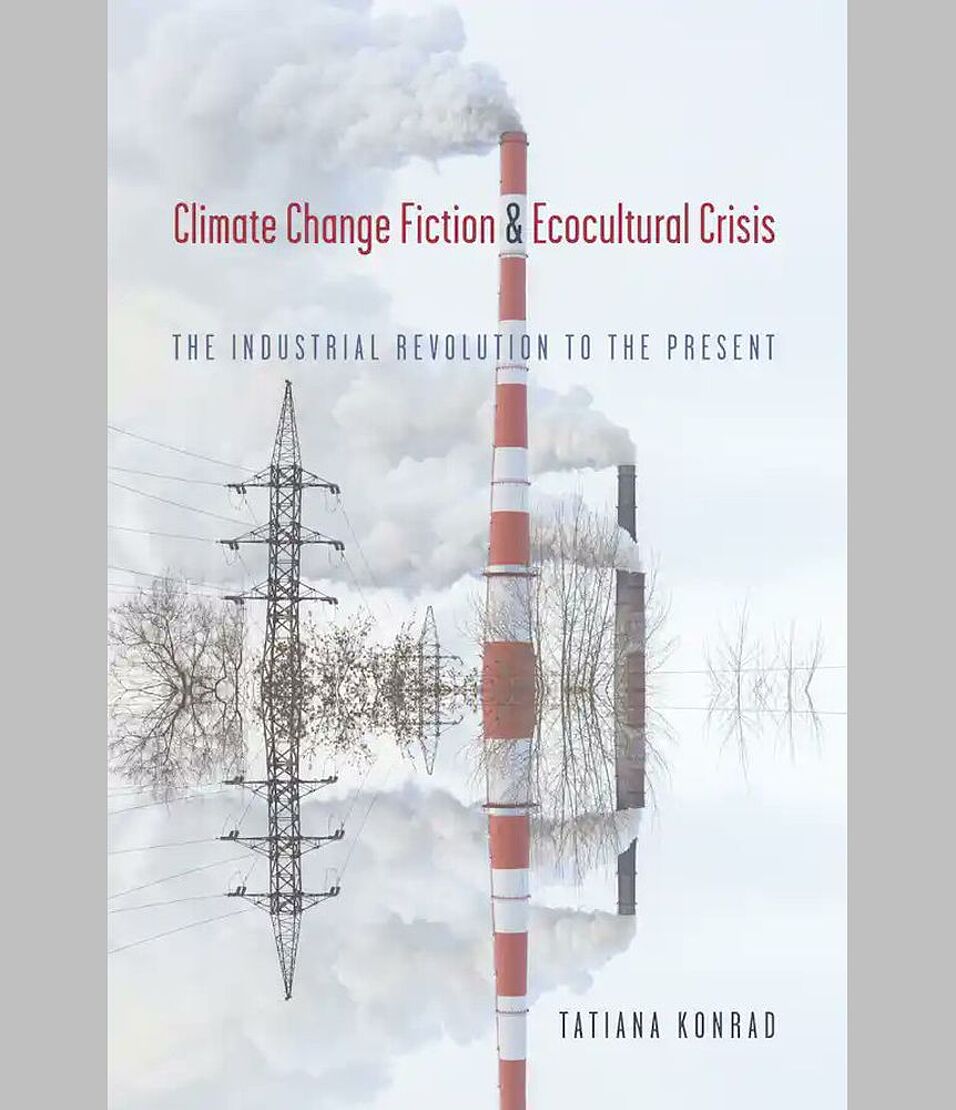Konrad, T. (2024). Climate Change Fiction and Ecocultural Crisis: The Industrial Revolution to the Present. Reno: University of Nevada Press.
From the publisher’s website (https://unpress.nevada.edu/9781647791599/climate-change-fiction-and-ecocultural-crisis/):
Concentrating on a powerful, emerging genre, Tatiana Konrad’s Climate Change Fiction and Ecocultural Crisis provides a survey of popular narratives that further our understanding of climate change in contemporary fiction. Konrad advocates for the expansion and redefinition of the cli-fi genre and argues that industrial fiction from the nineteenth century is the first example of climate change fiction. Tracing the ways through which cli-fi outlines a history of our modern ecocultural crisis, this book demonstrates how the genre employs four major thematic clusters to achieve this narrative: weather, science, religion, and place.
Focusing on a diverse range of issues, including fossil fuels, cheap energy, the intricacies of human–more-than-human relationships, and postcolonial geographies, Konrad illustrates how cli-fi transcends mere storytelling. The genre ultimately emerges as an important means to forecast, imagine, and contemplate climatic events.
The book invites a broadening of the environmental humanities discourse, asking readers not only to deepen their understanding of the current climate crisis, but also to consider how cli-fi culture can be viewed as an effective method to address climate change.
Tatiana Konrad is a postdoctoral researcher in the Department of English and American Studies, University of Vienna, Austria, the principal investigator of “Air and Environmental Health in the (Post-)COVID-19 World,” and the editor of the “Environment, Health, and Well-being” book series at Michigan State University Press.

